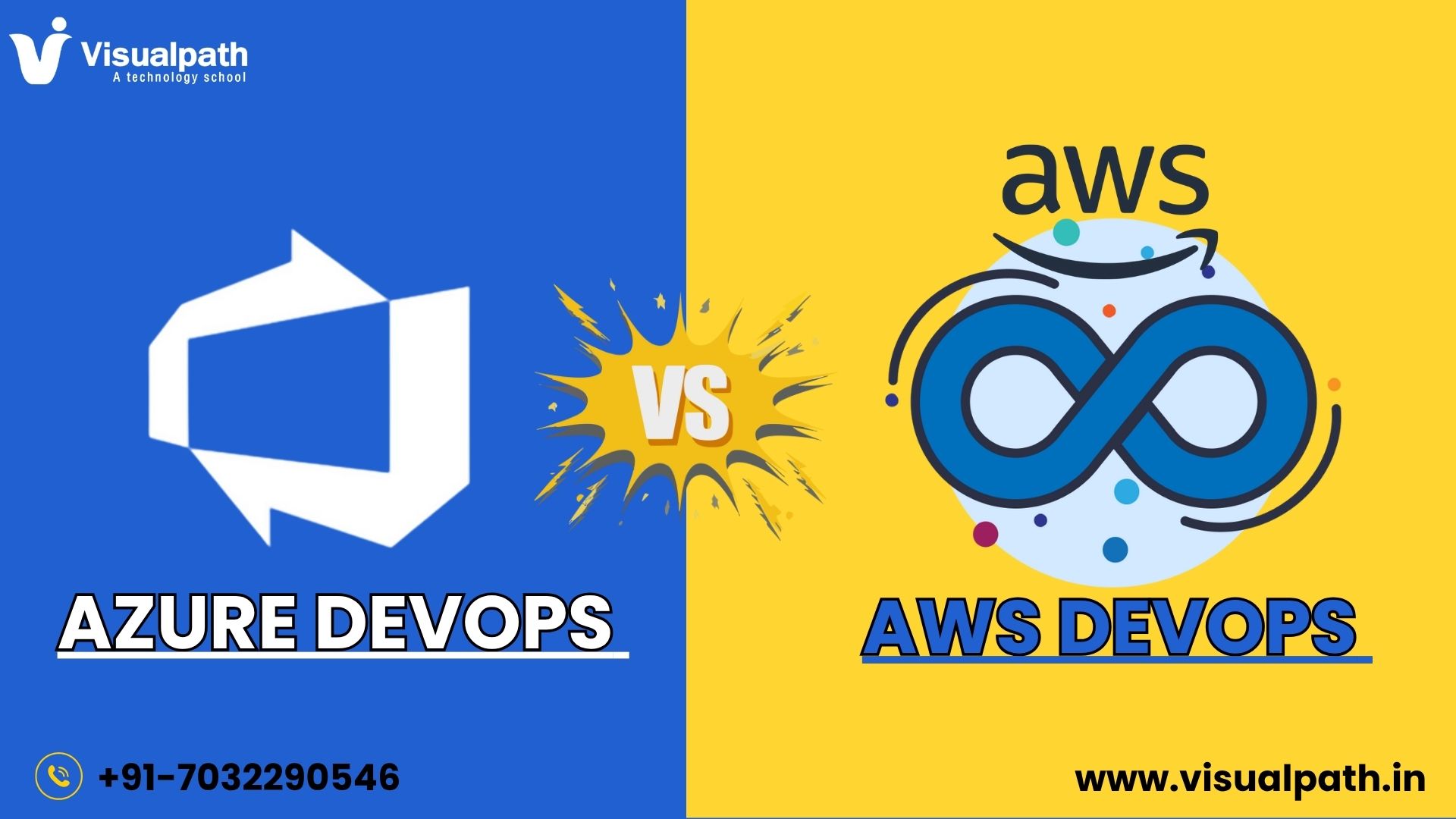Azure DevOps vs AWS DevOps—two cloud-based DevOps platforms that empower organizations to automate, monitor, and accelerate software development lifecycles. As DevOps practices become more essential in modern development, choosing the right platform can significantly impact your team’s productivity and success. In this article, we’ll explore the key differences between Azure DevOps and AWS DevOps in terms of features, integration, pricing, scalability, and ease of use. Whether you’re a developer, cloud engineer, or team leader, understanding the strengths of each can guide your decision-making process. If you’re just starting your DevOps journey, Azure DevOps Certification Training can be a great first step toward mastering Microsoft’s DevOps ecosystem.
1. Overview of Azure DevOps and AWS DevOps
Azure DevOps is a suite of development tools from Microsoft that provides end-to-end DevOps capabilities. It includes Azure Repos (version control), Azure Pipelines (CI/CD), Azure Boards (agile planning), Azure Artifacts (package management), and Azure Test Plans. It integrates natively with Microsoft’s ecosystem, making it a favorite among enterprises already using Windows Server, Active Directory, or Microsoft 365.
AWS DevOps refers to a collection of tools and services offered by Amazon Web Services to automate the software release process. Core services include AWS CodeCommit (Git repository), AWS CodePipeline (CI/CD), AWS CodeBuild (build service), and AWS CodeDeploy (deployment automation). For companies with a strong commitment to the AWS cloud, AWS DevOps is perfect because of its close integration with other AWS services.
2. Ease of Use and Setup
Azure DevOps offers a highly intuitive UI, especially for users familiar with Microsoft’s environment. It provides a quick setup for new projects with built-in templates, making it ideal for beginners. Azure Pipelines supports a number of programming languages and environments, including Windows, Linux, and macOS.
AWS DevOps may have a more difficult learning curve despite its advantages. It often requires more configuration and familiarity with the broader AWS ecosystem. However, for those already operating in AWS, it offers a seamless and deeply integrated experience.
3. Integration and Compatibility
Azure DevOps’ flexibility and compatibility with third-party applications are two of its greatest advantages. It integrates seamlessly with third-party systems like Slack or Jira as well as GitHub, Jenkins, and Docker. It also supports cross-platform development, including both Windows and Linux containers.
On the other hand, AWS DevOps tools are optimized for AWS-native services. They integrate well with EC2, Lambda, CloudFormation, and CloudWatch. If your infrastructure is fully on AWS, you’ll benefit from native monitoring, security, and scalability options.
Midway through your DevOps learning journey, consider taking Azure DevOps Training Online to gain hands-on experience with these integrations and understand how they work in real enterprise settings.
4. Scalability and Performance
Both platforms are highly scalable, but their strengths differ slightly. Azure DevOps supports hybrid cloud and on-premises deployment through Azure DevOps Server (formerly TFS), making it suitable for enterprises not yet fully in the cloud.
With its cloud-first design, AWS DevOps offers exceptional availability and scalability. Auto-scaling and serverless computing with AWS Lambda give it an edge for dynamic workloads and cost-efficient computing.
5. Pricing Model
Azure DevOps offers a generous free tier for small teams and charges per user for larger teams. It also offers parallel jobs for CI/CD pipelines, which can be purchased as needed.
AWS DevOps pricing is mostly pay-as-you-go, based on usage of compute, storage, and specific services like CodeBuild and CodePipeline. This model can be cost-effective for dynamic environments but may become expensive for constant high usage.
6. Which One Should You Choose?
- Choose Azure DevOps if you’re already in the Microsoft ecosystem, want flexibility with third-party integrations, or need hybrid/on-premises options.
- Choose AWS DevOps if you’re fully invested in AWS services and want deep native integration, scalability, and automation in a cloud-native environment.
Before concluding, enrolling in an Azure DevOps Course can help deepen your practical knowledge and prepare you for real-world cloud DevOps implementations.
Conclusion
Strong, feature-rich, and scalable DevOps solutions are offered by both AWS DevOps Vs Azure DevOps. Your choice depends on your existing infrastructure, team expertise, and business needs. Azure DevOps shines in its user-friendly interface and hybrid capabilities, while AWS DevOps excels in cloud-native scalability and automation. Understanding their differences is essential for building a robust DevOps strategy that aligns with your organization’s goals.
Trending Courses: MLOps, GCP DevOps, and AWS DevOps




